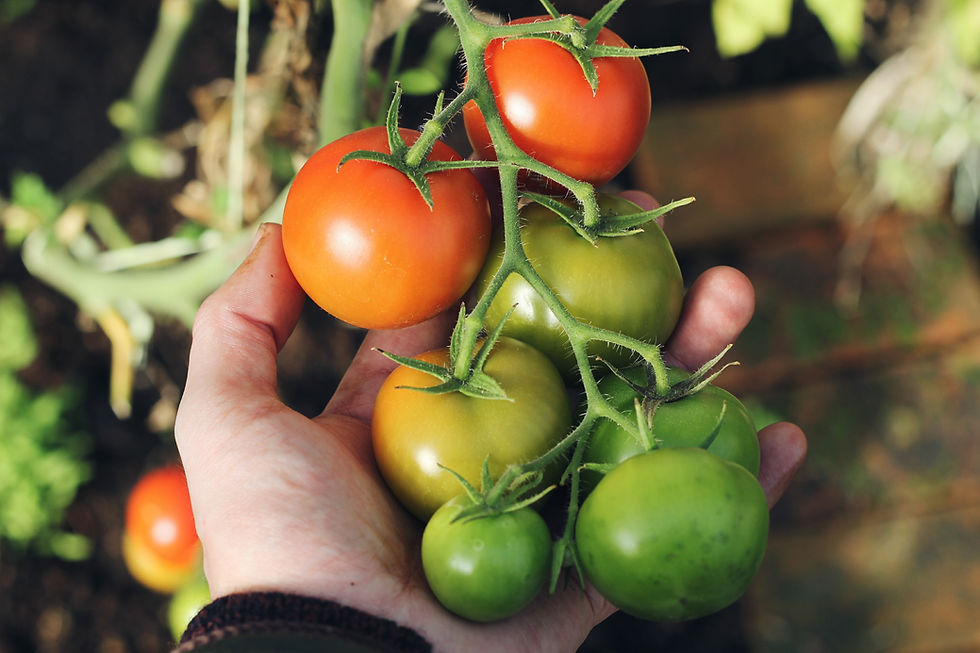Exploring the Myth: Will Hydroponic Nutrients Kill Fish?
- Izzy

- Feb 6, 2024
- 2 min read
Are you concerned about the potential harm hydroponic nutrients might pose to your aquatic friends? Wondering, "Will hydroponic nutrients kill fish?" Let's dive into this topic and separate fact from fiction.
Understanding Hydroponic Nutrients
Hydroponic gardening is a popular method of growing plants without soil, where nutrient solutions provide essential elements directly to plant roots. These solutions typically contain a precise balance of macronutrients and micronutrients necessary for plant growth. However, some growers may worry about the impact of these nutrients on aquatic life, especially if they're using hydroponic systems in close proximity to fish tanks or aquaponic setups.
Dispelling the Myth
The truth is, when used properly, hydroponic nutrients should not harm fish or other aquatic organisms. The nutrients used in hydroponic solutions are similar to those found in traditional fertilisers used in soil-based gardening. They are formulated to be water-soluble and easily absorbed by plants, posing minimal risk to aquatic life when used as directed.
Factors to Consider
While hydroponic nutrients themselves are generally safe for fish, there are some important factors to consider to ensure the well-being of aquatic ecosystems:
Ammonia and urea are the hydroponics nutrients that in excess can kill both fish and plants.
Dilution: Properly diluting hydroponic nutrient solutions is crucial to avoid over-concentration in water systems. Follow manufacturer recommendations for mixing ratios and avoid excessive nutrient concentrations that could harm fish.
pH Levels: Hydroponic nutrient solutions can affect the pH levels of water. Ensure pH levels are within the optimal range for both plants and fish to maintain a healthy aquatic environment.
Nutrient Uptake: Plants absorb nutrients from hydroponic solutions, which can impact nutrient levels in water. Regular monitoring and adjustment of nutrient levels are essential to prevent nutrient imbalances that could affect fish health.
Aquaponics Integration: In aquaponic systems where fish waste provides nutrients for plants, nutrient cycling is carefully balanced to support both fish and plant growth. Proper management of nutrient cycling is key to maintaining a symbiotic relationship between fish and plants.
Best Practices for Safe Hydroponic Gardening
To ensure the safety of aquatic life in hydroponic systems, follow these best practices:
Use high-quality, water-soluble hydroponic nutrients formulated specifically for hydroponic gardening.
Dilute nutrient solutions according to manufacturer recommendations to prevent over-concentration.
Monitor water quality parameters, including pH, nutrient levels, and fish health, regularly.
Integrate hydroponic and aquaponic systems thoughtfully, balancing nutrient cycling for both plants and fish.
Conclusion
So, to answer the question, "Will hydroponic nutrients kill fish?" When used responsibly and in accordance with best practices, hydroponic nutrients should not pose a threat to aquatic life. By following proper dilution, monitoring water quality, and integrating hydroponic systems thoughtfully, growers can enjoy healthy, thriving plants and fish in their hydroponic gardens.
Ammonia and urea are the hydroponics nutrients that in excess can kill both fish and plants.





Comentários